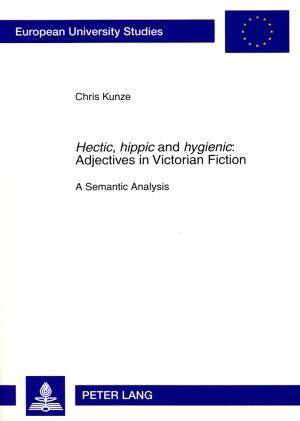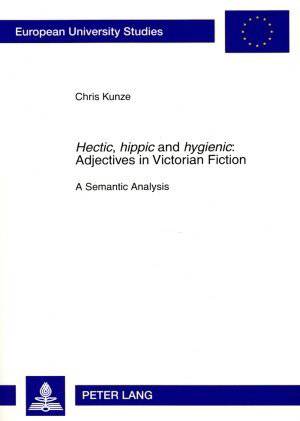
- Afhalen na 1 uur in een winkel met voorraad
- Gratis thuislevering in België vanaf € 30
- Ruim aanbod met 7 miljoen producten
- Afhalen na 1 uur in een winkel met voorraad
- Gratis thuislevering in België vanaf € 30
- Ruim aanbod met 7 miljoen producten
Zoeken
€ 71,45
+ 142 punten
Omschrijving
This linguistic study is an attempt at investigating the use of adjectives in Victorian fiction. The focus of the investigation is on semantic peculiarities of this particular word class so as to provide insights into the use of different lexical fields in three problem-oriented novels dealing with unexpected or unconventional aspects of nineteenth-century Britain, these being The Time Machine by Herbert George Wells, The Lifted Veil by George Eliot and My Lady's Money by Wilkie Collins. The study aims to show that adjectival descriptions as reflected in the use of semantic domains may be indicative of contemporary concerns, thereby providing revealing insights into the values of Victorian society. As carriers of socio-cultural values and means of authorial comment, adjectives may assume the function of keywords and acquire ideological connotations against the background of the Victorian era. In an interdisciplinary approach combining linguistics, cultural studies and literary studies, the analysis highlights that the identification of such key lexemes in terms of a semantic analysis may pave the way for a deeper understanding of a literary work in its socio-cultural context.
Specificaties
Betrokkenen
- Auteur(s):
- Uitgeverij:
Inhoud
- Aantal bladzijden:
- 300
- Taal:
- Engels
- Reeks:
- Reeksnummer:
- nr. 448
Eigenschappen
- Productcode (EAN):
- 9783631585122
- Verschijningsdatum:
- 20/02/2009
- Uitvoering:
- Paperback
- Formaat:
- Trade paperback (VS)
- Afmetingen:
- 148 mm x 210 mm
- Gewicht:
- 399 g

Alleen bij Standaard Boekhandel
+ 142 punten op je klantenkaart van Standaard Boekhandel
Beoordelingen
We publiceren alleen reviews die voldoen aan de voorwaarden voor reviews. Bekijk onze voorwaarden voor reviews.











